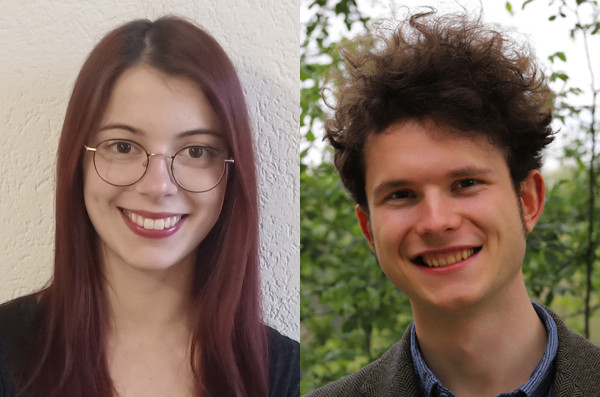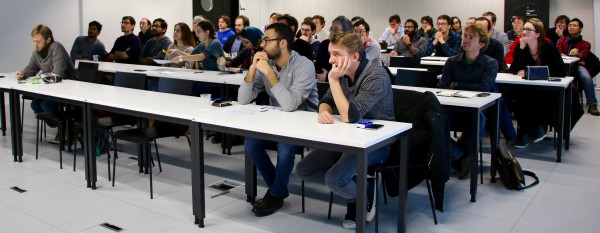MARVEL Junior Seminar — April 2024

Each seminar consists of two presentations of 25 minutes each, allowing to present on a scientific question in depth, followed by time for discussion. The discussion is facilitated and timed by the chair.
Note that the format has been recently changed, as the pizzas will be served AFTER the seminars in order to facilitate discussions based on the talks just presented. This seminar also takes place on a Friday rather than the usual Thursday.
Onsite participation
12:15 — Seminars take place in EPFL room Coviz2 (MED 2 1124)
~13:15 — Pizzas will be served in the MED building atrium, second floor
Online participation
Starting at 12:15:
https://epfl.zoom.us/j/68368776745
Password: 1923

Abstracts
Talk 1 — Photocatalytic water splitting from Koopmans spectral functionals: The case of TiO2 polymorph
Marija Stojkovic, Nicola Marzari
Laboratory of Theory and Simulations of Materials (THEOS), EPFL
Photocatalytic water splitting has drawn considerable attention to renewable energy production. Since the first reported photocatalytic water splitting by titanium dioxide, this material remains one of the most promising photocatalysts, due to its suitable band gap and band-edge positions. However, estimating both of these properties is a challenging task for standard DFT functionals. Here we show how Koopmans spectral functionals can accurately predict the band structure and level alignment of rutile, anatase, and brookite, demonstrating the advantage of orbital-density dependent functionals for predicting the spectral properties of photocatalysts.
Talk 2 — Overhead-constrained circuit knitting for variational quantum dynamics
Gian Gentinetta, Giuseppe Carleo
Computational Quantum Science Laboratory (CQSL), EPFL
Simulating the dynamics of large quantum systems is a formidable yet vital pursuit for obtaining a deeper understanding of quantum mechanical phenomena. While quantum computers hold great promise for speeding up such simulations, their practical application remains hindered by limited scale and pervasive noise. In this work, we propose an approach that addresses these challenges by employing circuit knitting to partition a large quantum system into smaller subsystems that can each be simulated on a separate device. The evolution of the system is governed by the projected variational quantum dynamics (PVQD) algorithm, supplemented with constraints on the parameters of the variational quantum circuit, ensuring that the sampling overhead imposed by the circuit knitting scheme remains controllable. We test our method on quantum spin systems with multiple weakly entangled blocks each consisting of strongly correlated spins, where we are able to accurately simulate the dynamics while keeping the sampling overhead manageable. Further, we show that the same method can be used to reduce the circuit depth by cutting long-ranged gates.
Check the list of the next MARVEL Junior Seminars here.
Low-volume newsletters, targeted to the scientific and industrial communities.
Subscribe to our newsletter